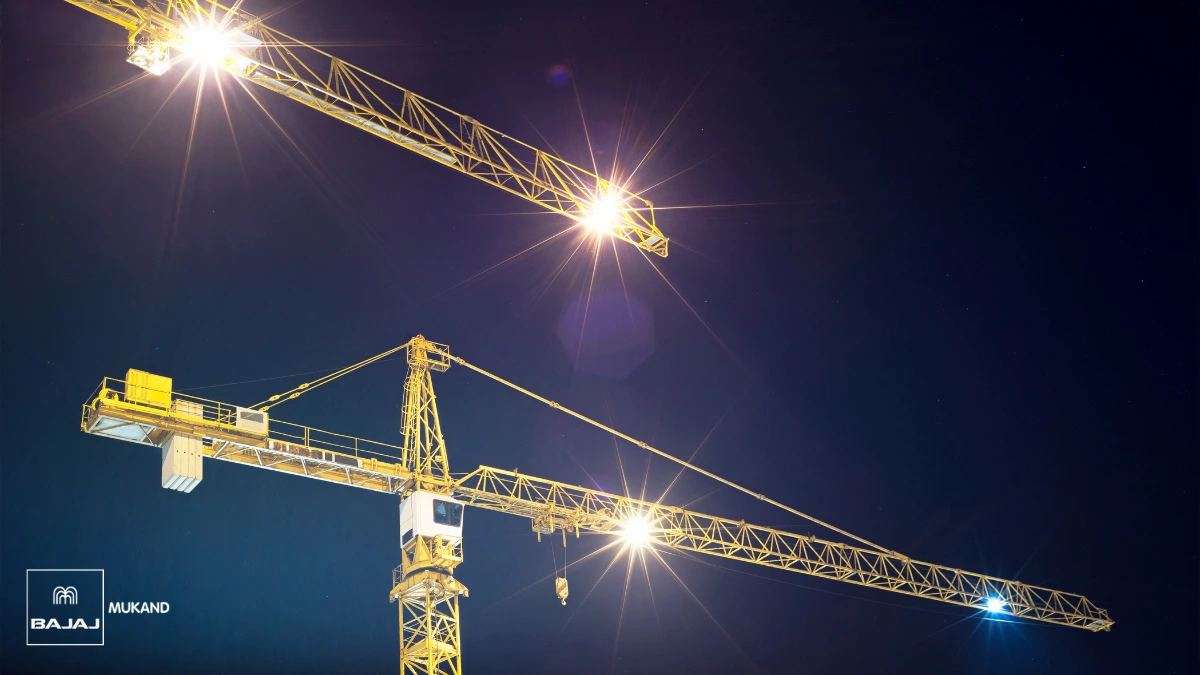


Choosing the right crane for manufacturing plant operations is crucial for improving efficiency, productivity, and safety. A properly selected crane enhances the workflow, minimizes risks, and optimizes the lifting and moving of materials in your facility. The right crane ensures that your plant operations run smoothly, preventing delays and reducing downtime. In this guide, we will explore the factors you need to consider when selecting a crane for your manufacturing plant.
Manufacturing plants require different types of cranes depending on their specific needs. Here are some common types:
When selecting a crane for your manufacturing plant, it’s important to consider the following factors:
The load capacity of a crane refers to the weight it can safely lift. Assess the weight of materials your plant frequently handles to determine the load capacity needed. For instance, if you are lifting heavy machinery or bulk materials, you will require a crane with a higher load capacity, like the EOT Crane (250 ton capacity) or Girder Crane (500 ton two girder).
The span refers to the width of the area the crane can cover. The reach is the horizontal distance a crane can move materials. Consider the plant layout, available space, and specific operational needs when determining the appropriate span and reach for your crane. If your plant has narrow aisles, a Gantry Crane (100 ton gantry) may be ideal.
Lifting height refers to how high the crane can lift materials. If your manufacturing plant has multiple levels or high-rise structures, make sure to choose a crane that meets the required lifting height. Cranes like the Rotating Trolley Crane offer flexibility in lifting height for such environments.
The frequency of use determines whether a light-duty or heavy-duty crane is needed. For plants with continuous, high-volume operations, a more durable and robust crane is required. For occasional tasks, a lighter, less expensive option might suffice.
Environmental factors such as temperature extremes, humidity, or exposure to corrosive substances can affect the performance of your crane. If you operate in outdoor or harsh conditions, select a crane designed to withstand those environments. Cranes used in ports or shipyards, such as Shipyard Cranes, need to be particularly resilient.
Consider whether your plant needs a fixed or mobile crane. Fixed cranes are stationary and suitable for plants with a fixed layout, while mobile cranes offer more flexibility in moving materials across the facility. If you have a spacious layout, you might prefer a Gantry Crane for its ability to move across large areas.
Besides the core specifications of load capacity, reach, and height, several other factors should influence your decision:
Ensure that the crane you choose is easy to maintain. Regular servicing is vital to prevent downtime and costly repairs. Opt for a crane that is well-known for having readily available spare parts and service support. Check with local crane manufacturers in India for service capabilities.
Safety is paramount. Ensure that your operators are trained to use the crane safely. Proper training can prevent accidents and improve efficiency.
Key safety features include overload protection, emergency stop systems, and limit switches. These features are necessary to ensure safe operation and protect both operators and equipment.
Choose an energy-efficient crane to reduce operational costs and minimize your environmental impact. Electric cranes are often more energy-efficient and cost-effective over time.
The cost of a crane includes more than just the initial purchase price. You must also consider installation, maintenance, and operational costs. Compare prices between EOT crane manufacturers in India and crane manufacturers in India for the best deal. Also, consider the return on investment (ROI) over the crane’s lifespan. While some cranes may have a higher initial cost, their durability and efficiency can lead to long-term savings. If your budget is tight, financing options or leasing might be suitable for large-scale projects.
Choosing the right crane for your manufacturing plant involves evaluating various factors, including load capacity, span, reach, and environmental conditions.
Always ensure that the crane meets your specific operational needs and fits within your budget. Consulting with crane manufacturing companies in India and conducting trial runs can help you make an informed decision. Don’t forget to prioritize safety and maintenance in your selection process.
If you are looking for reliable custom machine-building solutions, Mukand Bajaj is your ideal partner. We specialize in designing and manufacturing high-quality, tailored equipment for various industrial applications. With our expertise and commitment to innovation, we ensure that our machinery meets the specific needs of your manufacturing plant.
Our focus is on providing durable, efficient, and cost-effective solutions that enhance productivity, safety, and overall operational efficiency. Take time to assess your plant’s specific needs and consult with crane suppliers for tailored solutions. With expert advice, you can select a crane that enhances productivity, safety, and efficiency in your manufacturing plant.
Contact Mukand Bajaj today to find the perfect custom machine-building solution for your plant. Let us help you enhance your operations with custom-built solutions designed for maximum efficiency!